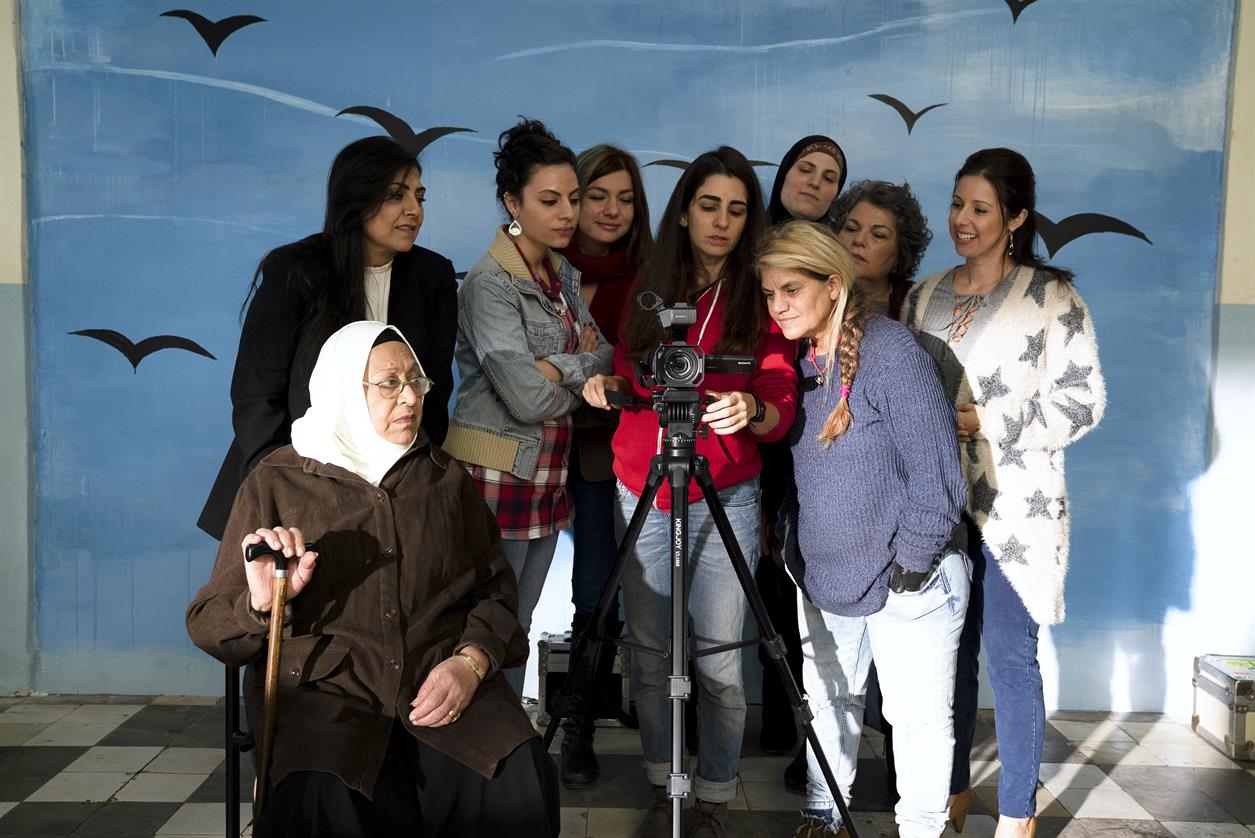If 2022 was the year of self-reflexive explorations of harnessing cinematic tools to varying means––the likes of Steven Spielberg, James Gray, Alejandro González Iñárritu, and Jafar Panahi all providing differing viewpoints on how artistic ambitions have forged the paths of their lives––Orit Fouks Rotem’s debut feature Cinema Sabaya also deserves to be part of the conversation. With the smallest scope amongst the aforementioned–yet, like Panahi, exuding a documentary-like realism to excavate deeper truths––Israel’s Oscar entry examines how the unified pursuit of artistic fulfillment can break down cultural and religious barriers to invite conversations that otherwise may never take place.
Set entirely inside a Tel Aviv filmmaking workshop across multiple sessions, the film is made up of nine women from disparate class and religious backgrounds––some Arab and some Jewish––guided by instructor Rona (Dana Ivgy). Drawing inspiration from Rotem’s own background, both as a teacher and from her mother’s own experience in similar classes, Rona’s assignments are designed with a kind of therapeutic catharsis––from making short films about home life that invite conversation to having the women role-play personal relationships as other classmates film them. Through their amateur filmmaking and the post-screening discussions, topics of prejudice, homosexuality, abuse, and rekindling romance are all examined. For as intense as the discussions can get, Rotem achieves a recognizable warmth and immediacy through her nimble, unobtrusive filmmaking style and partially improvised script carried out by the remarkable ensemble.
Through the economical conceit of focusing solely in a single room, one can get the occasional impression Rotem is simplifying issues of great complexity, cutting away from some discussions with an abrupt shortness. Yet a gentle humility and a sense of naturalism from all involved, ranging from experienced actors to debut players, grounds the film in an absorbing manner. Since this is the first time many are picking up the camera for artistic endeavors, a sense of naivety guides the process, yet Rotem shows the impact of expressing a personal viewpoint. One woman films her husband cutting his toenails––a bland, perhaps off-putting sight in a vacuum. But in a post-screening discussion it is revealed it’s the one moment of vulnerable self-care in his life. So lacking confidence she doesn’t even want to show her work, another woman films a simple scene of her children quarreling and then a solitary long shot of running water. Yet through the communal appreciation of other women in the group, new meaning is found.
By never seeing home life except through these amateur films, Cinema Sabaya shifts the power of storytelling strictly through a female perspective. In showing the restorative effect of filmmaking, Rotem also expresses how essential analysis is in the process, inviting conversation that illuminates creative decisions and what they reveal about personal issues. From heartbreaking confessional passages detailing domestic violence to moments of levity as we see smiling faces when room tone is captured, Cinema Sabaya attempts to capture the spectrum of the human experience with a simplified conceit. While its reach may exceed its grasp, Rotem’s debut shows the necessity of making space for a dialogue, and how filmmaking is the perfect tool to express ideas that words can’t capture.
Cinema Sabaya opens in limited theaters on February 10 and will expand.

